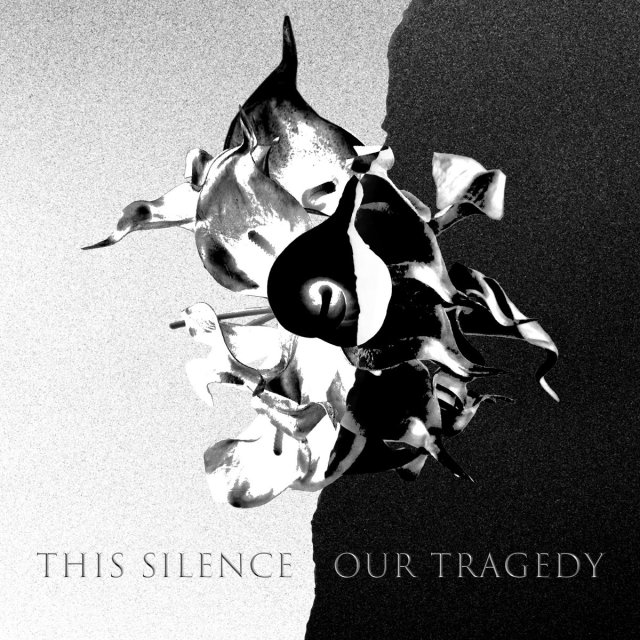2000
The year 2K brought lots of retrospective music from the man into my Record Cell. In addition to catalog items I bought dating back as far as my Bowie collection would go [thus far], he also headlined the Glastonbury Festival in the UK, marking a 30 year span between his appearance in 1971 at the first one to use the Glastonbury name and his second in 2000. He took to the stage sporting locks taken right off of the cover of “The Man Who Sold The World,” so one imagines that he planned it that way; deliberately revisiting his 1971 hairstyle. After years of the UK press dismissing, if not outright slagging Bowie off, this marked the point where he cemented his legacy as a superstar; erasing years of erratic direction and an indifferent or hostile UK press. The Tin Machine jokes ended here. Seeing as how I was in America at the time, this meant little to me. Not that I would attend such a festival in any case. Instead, I got two releases that widened the span of my Bowie collection.
 I remember the album “Starting Point” that my friend David bought in the late 70s. It was full of super early, mind blowing primeval David Bowie that I barely heard at the time as it sounded nothing like what we thought of as David Bowie music. It was the album that predated the “Space Oddity” album of 1969, and when visiting Time Traveler Discs in Cuyahoga Falls that summer, I saw that the 1967 “David Bowie” album [which was the source of the 1977 “Starting Point” reissue” David had gotten] had now been revisited and pumped full of bonus tracks covering much more territory. This was the time to pick this material up! Of course, now it’s a 2xCD DLX RM with the stereo and mono mixes of the album. I guess I can live with what I have.
I remember the album “Starting Point” that my friend David bought in the late 70s. It was full of super early, mind blowing primeval David Bowie that I barely heard at the time as it sounded nothing like what we thought of as David Bowie music. It was the album that predated the “Space Oddity” album of 1969, and when visiting Time Traveler Discs in Cuyahoga Falls that summer, I saw that the 1967 “David Bowie” album [which was the source of the 1977 “Starting Point” reissue” David had gotten] had now been revisited and pumped full of bonus tracks covering much more territory. This was the time to pick this material up! Of course, now it’s a 2xCD DLX RM with the stereo and mono mixes of the album. I guess I can live with what I have.
The new “David Bowie: The Deram Anthology 1966-1968” had a fulsome 27 tracks, including the early version of “Space Oddity” that was in the Deram vaults. It was packed with unreleased material [much of which was quite good] and the various single mixes that went nowhere on UK seven inch at the time. It really showed the Ken Pitt vision for Bowie as an all-round entertainer in the Anthony Newley mold. Certainly, the gruesome Newley’s vocal attributes had always been a Bowie touchstone, even in the later decades when only old guys like me bore the scars of having seen Newley sing on 60s television shows. The Newley influence was something that I, as a Bowie fan, always had to endure quietly.
The other blast from the past that was issued that year, was a boxed set of the BBC sessions that Bowie had recorded in the early, pre-superstardom phase of his career. I received this as a birthday present from Mr. Ware of the comments that year. The cream of these sessions were spread across 2 CDs and the first printing had a bonus disc of a Y2K BBC radio concert for lucky Bowienet members [and certain musician fans of a Bowie persuasion] recorded that June 27, 2000 that had a lovely set list hitting many highlights across his career. This would be the last time that Reeves Gabrels played with Bowie as their 12 year tour of duty together had come to an end. One got the impression that Gabrels was not interested in Bowie music without an aggressive edge and the reflective
“Hours…” material must have been the last straw for the guitarist.
The material on the first two discs was mostly in mono, except for the session that began disc two. Disc one began with the material from the 1967 “David Bowie” album, so I really heard a lot of it in that year. Not all of the sessions were complete; presumably Bowie had editorial control, but it was undeniably a well edited set with occasional revisits of the same material in very different arrangements. One of the best songs from this period was here. “Let Me Sleep Beside You” was a great hippie-rock tune that might have broken Bowie out of the doldrums he languished in for so long were it not deemed unfit for release or airplay at the time due to the suggestive title.
Disc two documented the fertile pre-post Ziggy period and marked the point where Mick Ronson began playing guitar with Bowie. The first such session was recorded just days after he threw his lot in with Bowie, and the boost in impact and delivery was palpable. It’s easy to imagine Bowie continuing to languish or even to disappear entirely without Ronson’s contributions. There was a pressing error on disc two with the same recording of “Ziggy Stardust” appearing twice, and there was a correction disc pressed up that I never bothered to obtain. I’m still living and breathing, so there was no risk there!
The third CD was an excellent Bowie live album with his band of that period. The singing and arrangements were excellent. The live material from “Hours…” was always appreciated since that tour was scant and minimal at best. Beginning with “Wild Is The Wind” was a gutsy move, but it showed where Bowie’s interests lay at the time; burnishing his legacy and laying into deep cuts that were unimpeachably righteous. He blended this material from the 70s with current work that didn’t suffer as much as 80s material would have in comparison. With one exception. The last track on this disc was a bold new arrangement of “Let’s Dance” that opened with a teasingly jazzy verve before eventually falling into the the familiar arrangement that we all know. One wishes that he could have kept up the new arrangement all the way to the end. For the first time, I began to like the song.
Next: …Risky Folio











![Chris Cross: 1952-2024 [part 2]](https://i0.wp.com/postpunkmonk.com/wp-content/uploads/2024/04/ultravox-cross.jpg?resize=200%2C200&ssl=1)


Man, I remember you and I and David making jokes about “The Laughing Gnome” back then, a mere 10 years removed from the atrocity! The early Bowie albums are interesting for seeing where certain influences came from, what could have been, and as seedwork for where he would end up all at the same time. He would touch base with those roots (and his early musical heroes) periodically throughout his career, overtly or subtly.
Bowie at the Beeb (I have the three-disc set; once you know something exists, you must have it, to paraphrase both Moby Dick and Khan Noonian Singh) — is a real treasure. I’ve always liked BBC Radio sessions, especially Peel sessions, for really giving listeners a feel for how much of a given performer is “the studio/producer” and how much is really “them.” This is currently more the function of NPR’s “Tiny Desk Concert” series, in a way — like BBC Radio in the day, NPR is too poor to provide anything more than the most basic professional recording mics and a mixing board — after that, it’s all you, interns walking in on your performance and all.
In fact I initially wanted it more for the bonus disc — that live band is fantastic — than the historical stuff, but of course once I listened to it more seriously I saw it as slabs of valuable artist-development insight, including just how much the right collaborator can bring to someone’s own vision. In light of Sir George Martin’s passing, we’re reminded of this yet again; it’s doubtful the Beatles would have achieved much of what they did without him, just as Nick Drake’s songs would most be lost in a drawer somewhere without the skilled arrangements of Robert Kirby (an undersung genius) and some of the other people who worked with him.
I consider Beeb to be an essential collection of proto and early Bowie. Sure, it would have been fascinating to see him in similar sessions throughout the later 70s and 80s (and 90s!), but alas. The bonus disc featuring top-notch performances of the highlights of those eras will have to suffice.
LikeLike